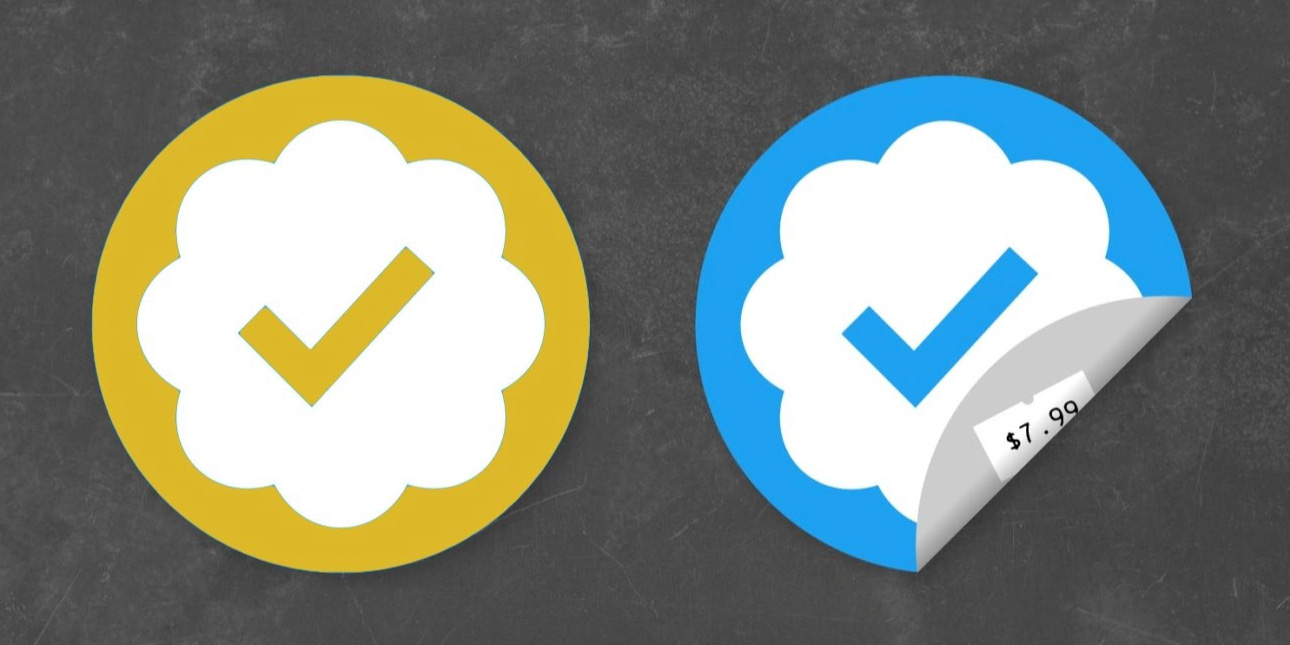What the Verification Wars at Twitter Are Really All About
Elon Musk, Twitter as an institution, and fans of the Tesla, SpaceX, and Twitter chief are lying to the public right now—maybe also themselves—about what's really going on at Twitter.
Introduction
Yesterday evening I attended a Twitter Spaces symposium in which over 1,500 people were present—and I appeared to be the only person there without the $132/year emoji ($96/year for certain customers) now being sold by Twitter CEO Elon Musk. This is a shorthand way of saying that last night I was very much in the lion’s den as a vocal critic of Mr. Musk: indeed, the symposium was an opportunity for those who’d bought (literally) into Musk’s non-verification—what I call “verifiction”—scheme at Twitter to opine with fellow travelers about all those who’ve made a different choice.
Surprisingly, there were many things said during the symposium that I agreed with, even though the eight hosts of the event were known far-right trolls, influencers, or (as many of them, I kid you not, actually introduced themselves to the assembled 1,500-strong audience) “shit-posters.” A great many of the hosts and speakers appeared to be from somewhere other than the United States, which I suppose is to be expected given that Twitter is an international platform and it is foreign nationals who would feel the most sanguine about “shit-posting” on a digital platform in a way that’s been enormously destructive to American culture. Wrecking someone else’s house is—in theory—both safer and easier and more fun than doing the same thing to your own.
Among the points of agreement I identified between Musk fanboys and fangirls and Musk critics were these:
No one believes Musk created the new “verifiction” system—in which Twitter users willing to pay $8 or (for Android and iOS customers) $11 per month need only confirm their phone number, and not their identity, for Twitter to pretend that they have been in some way “verified”—to make money. All of the available data confirms that Twitter Blue is not a money-maker. Thus far, only 400,000 or so of the platform’s 365.5 million users have signed up for the service, which doles out perks that were either previously free on Twitter or were previously promised as future free functionalities (for instance, the ability to post longer tweets and videos). Given that Twitter is now worth, at most, $20 billion, having lost $24 billion of its purported value over just the period of Elon Musk’s ownership of the company (this according to Musk himself), and given that Twitter’s annual debt repayments are absolutely staggering, there’s no evidence that even a far, far, far more ubiquitous adoption of Twitter Blue by Twitter users would make even the smallest dent in Twitter’s increasingly precarious financial position. And all this is quite apart from the fact that as the second-richest man in the world, Musk has no need for money himself—and every ability to pump more money into Twitter from his own filled-to-bursting, Scrooge McDuck-like coffers than Twitter Blue ever will.
Everyone believes that Twitter usage offers a financial and professional benefit to a great many classes of Twitter users, among them journalists, politicians, influencers, sports and entertainment celebrities, academics, artists of every stripe, and business executives. While Twitter offers these groups of people far less reach in terms of promoting their brands, expanding their reach, and building an audience than do many other social media platforms (Twitter ranks fourteenth among social media platforms in Monthly Active Users or MAUs, as indicated in the chart below), there can be no doubt that many content creators who have either created a personal economy within the larger gig economy or are partly responsible for building someone else’s brand can get long-term pecuniary benefit from using Twitter regularly. On both sides of the current verification war this maxim is beyond doubt.
The end of proper verification protocols at Twitter is something the political right in the United States—particularly the right’s far-right fringe—has wanted for some time. While this item is more of a partial agreement than a fulsome one, as MAGA influencers and commentators repeatedly claim that Twitter has since its inception had a far-left algorithmic bias that’s only exacerbated by its protocols; this self-serving thesis has been repeatedly debunked with Twitter internal data, and even the company has said that its internal metrics show it is not only untrue but the opposite of the truth, as Twitter has publicly confessed to its algorithm having a far-right political bias—it does remain the case that all Twitter users acknowledge that by ending Twitter’s verification protocols Musk was indulging his own increasingly conservative ideological positions on matters ranging from equality for trans people to the debt ceiling, support for Ukraine to what he and the American right define as “free speech” (best summarized as approximately the exact opposite of what that term has meant in the course of American history).
Digital Platforms by Monthly Active Users (Worldwide)
Unfortunately, the list of areas of agreement between Elon Musk’s most avid boosters and everyone else ends there.




